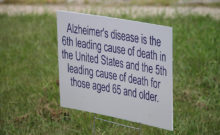 The most essential item for our health and survival is safe, clean drinking water. While many people may think that their current water supply is safe to consume, this may not actually be the case. Over the past few years, rapid industrialization and modern living has resulted in a large number of waterways becoming polluted. One of the main ingredients responsible for extensive levels of pollution in our tap water is pesticides.
The most essential item for our health and survival is safe, clean drinking water. While many people may think that their current water supply is safe to consume, this may not actually be the case. Over the past few years, rapid industrialization and modern living has resulted in a large number of waterways becoming polluted. One of the main ingredients responsible for extensive levels of pollution in our tap water is pesticides.
How Pesticide Products End up in Waterways
Most pesticide products are applied to farmlands, lawns and gardens in order to keep them in top condition and free from destructive pests, weeds and invader plant species. In many cases though, these products are washed down drains which causes them to find their way into our tap water supply. These chemicals remain in the water because there is no way to ensure that all traces of them can be removed. As a result, most of us are consuming harmful chemicals in our drinking water on a daily basis.
Types of Chemicals Found in Water
Although ingredients such as DDT and those containing arsenic, mercury and lead are no longer permitted in pesticide products, these pollutants are still turning up in water supplies on a regular basis. Newer products manufactured from diazinon and malathion have replaced the above ingredients since the early 1970’s. While these two ingredients were initially thought to be safer than their predecessors because of their ability to biodegrade, it has since been discovered that this may no longer be the case.
Potential Side Effects of Exposure to Pesticides
Not everyone will have the same reactions to pesticide residue in their drinking water. Among the more common symptoms of exposure to these harmful chemicals are headaches, dizziness and nausea. In more severe cases, it is thought that prolonged exposure to pesticides can result in the development of heart and lung conditions as well as various forms of cancer. In cases where pesticide exposure was higher than the accepted norms, birth defects and other deformities have been reported.
Tips to Avoid Ingesting These Chemicals
Although it may not be possible to completely eliminate pesticide residue from our tap water, investing in a good quality water filtration or purification system will certainly help. Having your tap water pass through one of these devices prior to drinking will eliminate a large percentage of harmful pesticide products from your water. These products usually also cause water to taste extremely unpleasant, so having it run through a filter will change the taste for the better and ensure that drinking water becomes a pleasure once again. People at the highest risk of ingesting pesticide through their water supply are those who rely on underground wells. It is recommended that water samples from these wells be tested on a yearly basis to ensure that it is safe for you and your family to consume. Switching to organic gardening and crop protection products will also go a long way towards protecting our water supply for future generations to enjoy. Image Source: Flickr/Sonia Belviso

